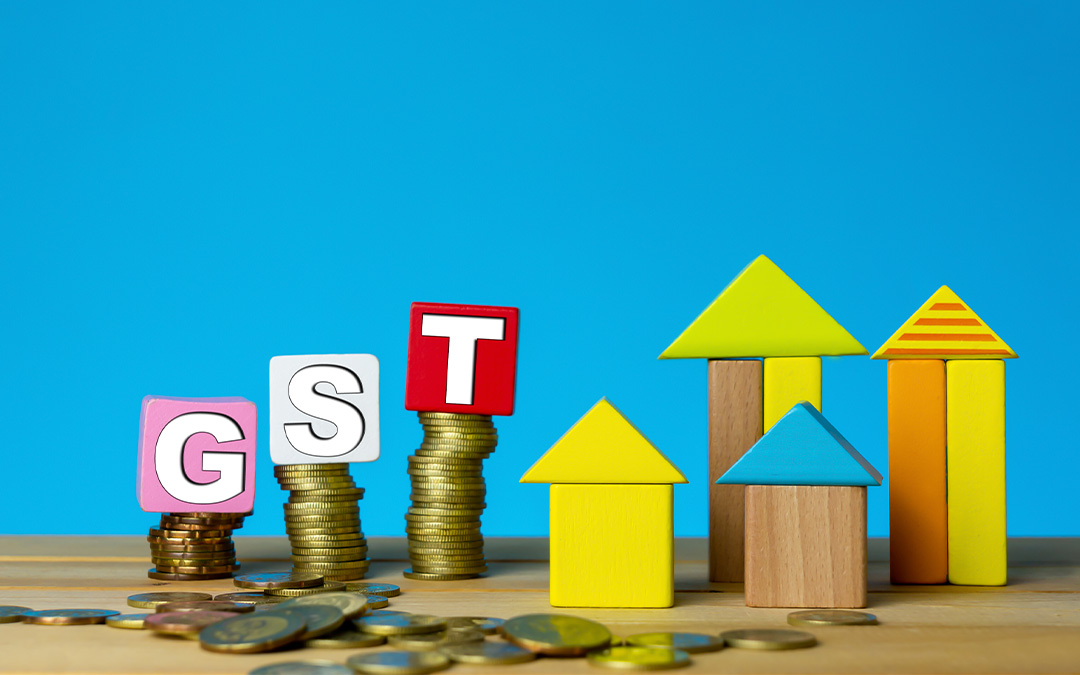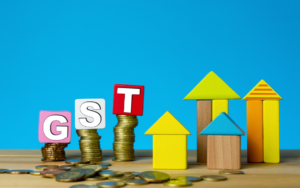Acquiring a home holds great symbolic significance, representing independence, stability, and success. For many, it marks a significant milestone and a substantial financial commitment. Purchasing a house stands out as one of the most costly investments for the majority, bringing about considerable and long-term financial implications. Various expenses come into play, including loan EMIs for those seeking financial assistance, insurance, maintenance costs, and, last but not least, taxes. Speaking of taxes, there are diverse obligations tied to home buying, encompassing property tax, mortgage tax, transfer tax, GST, and more.
Let’s break down what GST is and what it means for buying a house.
GST on residential property purchase
So, what exactly is GST in the real estate sector? To understand the implications of GST on home purchases, we need to grasp the concept of GST. Goods and Services Tax, or GST, is a value-added tax imposed on the supply of goods and services in India. When it comes to buying a property, GST is relevant to the acquisition of newly constructed or under-construction homes.
The calculation of GST on a home purchase is based on the property’s market value. However, various factors and exemptions can influence the GST on a property, including its type, location, construction status, ITC, and more. It’s crucial to recognize that the GST for buying a home may vary due to changes in government policies and regulations. Consequently, seeking advice from professionals like tax consultants or real estate agents is recommended to comprehend the specific GST registration charges, GST cancellation charges, and other GST fees related to your property acquisition.
GST is exclusively applicable when acquiring an under-construction property in India. In such cases, the home buyer might be required to settle GST for specific elements of the transaction, including construction services, materials utilized in construction, and associated services.
Nevertheless, grasping the computation of GST in real estate is crucial because the method of calculating GST on flat purchases differs from that on under-construction property acquisitions. To comprehend this, familiarity with Input Tax Credit (ITC), a fundamental component of the GST system, is necessary. Within the GST framework, the claiming of ITC is contingent on proper documentation, typically in the form of a tax invoice.
The computation of GST can differ depending on the property type. For an under-construction apartment falling under affordable housing, the GST rate stands at 1%, excluding Input Tax Credit (ITC). On luxury flats categorized as non-affordable housing, the GST rate is 5% without ITC. Conversely, if you are contemplating the purchase of a ready-to-move new flat, GST does not apply. Similarly, there is no GST levied on land purchases.
GST rates are susceptible to modifications in accordance with regulations and announcements. Therefore, it is recommended to seek expert guidance when buying a property in India to gain a clear understanding of the GST implications.
Impact of GST on residential property purchase
The introduction of GST has influenced various categories of property acquisitions, including affordable and luxury housing as well as under-construction properties. Additionally, GST has implications on registration fees and stamp duty rates.
Benefiting from the adjusted rates of 1% for affordable housing and 5% for luxury housing, homebuyers find themselves in a favorable position. The decrease in GST rates has stimulated a higher demand for under-construction properties. It’s important to note, though, that the revised GST rates do not impact stamp duties and registration fees, which remain unchanged.
Misunderstandings Surrounding GST on Residential Property Acquisition
While the concept of GST is not new, it can be quite intricate for first-time home buyers, leading to various misconceptions. Here are some common misunderstandings about GST on residential property purchases:
- Misconception: GST on property is calculated like other GST implementations.
The calculation of GST on property purchases can fluctuate depending on factors like affordable and luxury housing schemes, construction phase, and property type.
- GST is applicable on land purchases
No, buying land levies no GST.
- GST rates are more favorable for affordable housing projects.
The GST rates for affordable housing projects can vary based on the property’s size and value, potentially making them not always affordable with the inclusion of GST.
Understanding GST in real estate can be challenging for a home buyer without specialized knowledge. Therefore, it is advisable to seek professional assistance when navigating the process of purchasing a house, as it often includes intricate steps and processes, including the calculation of GST and various other taxes.









